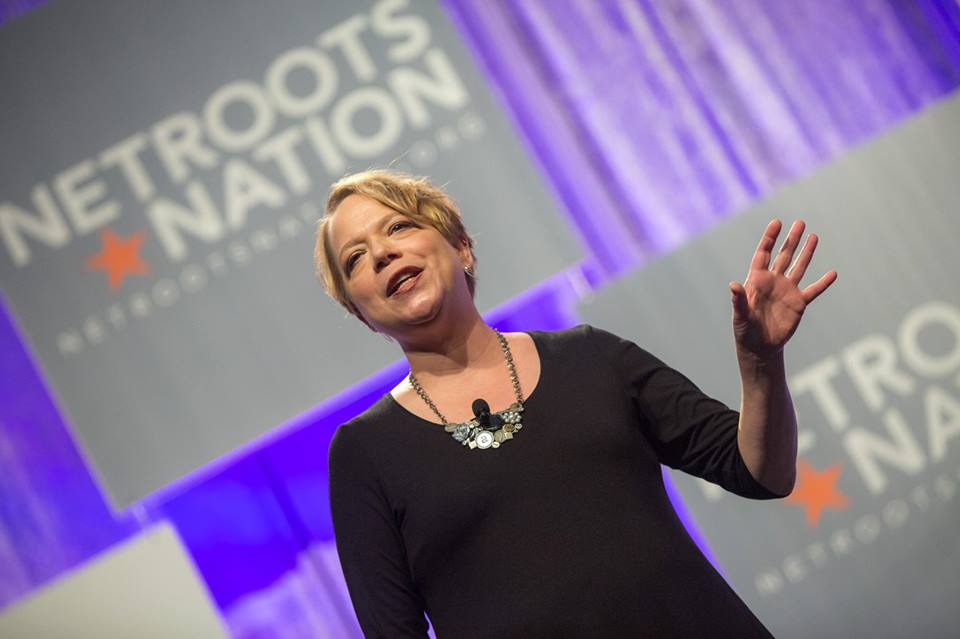In the bigger picture of healthcare reform, a clinical approach that prioritizes wellness over treatment is exactly what we need.
Over at my personal blog, I recently wrote about my experience with Functional Medicine and how it’s overhauled my health. Although it’s not brand-new, Functional Medicine is an approach to care that’s rapidly gaining acceptance — and for good reason.
When you consider that healthcare reform advocates are working to transform what’s known as America’s “sick care system” into a healthcare system that emphasizes prevention and wellness, Functional Medicine could be central to this goal.
Below is the post that originally appeared at my website.
_________________________
I am not a diabetic. I am a person with diabetes. I am not any of the health conditions that have plagued me in recent years. I am a whole person, a complex biological system that should not be chopped up into little segments. This is why I’ve embraced Functional Medicine, and it’s transforming my health.
I could just as easily say “Functional Medicine has transformed my health” — because it already has — but I don’t see wellness as a finite goal. I see it as a continuum, part of my everyday experience. It is my everyday experience, because every part of my life is fueled by my wellness, and vice versa.
 A little over one year ago I was significantly overweight. I could attribute some of it to bad habits, but a rapid piling on of the pounds in a single year made me think there was more to it than that. And I was right.
A little over one year ago I was significantly overweight. I could attribute some of it to bad habits, but a rapid piling on of the pounds in a single year made me think there was more to it than that. And I was right.
In October 2013 I wasn’t just overweight. I struggled to control my diabetes. I was taking two blood pressure medications, one medication to manage my gastrointestinal troubles and another to manage my hormones. I suffered from insomnia, inflammation, lack of energy and various musculoskeletal woes.
Even though I write about healthcare for a living, all the things I was told would help weren’t getting me anywhere. When I talked to one of my doctors about losing weight, he told me, “Don’t eat bread.” When I asked for more guidance he shrugged and said, “I don’t know what else to tell you.”
Fortunately, a friend told me about Functional Medicine, a truly patient-centered approach to health and wellness that looks at the root causes of disease. It combines traditional medicine with holistic, naturopathic modalities and focuses on answering the question, “Why is this health problem happening?” instead of simply trying to mask the symptoms with medication. Functional Medicine looks at all the factors that might impact a person’s health and then creates a personalized plan of action.
I started working with a Functional Medicine practitioner, Heidi Iratcabal, N.D. After one of the most thorough medical histories I’ve ever experienced, she identified a primary cause of my health issues as being in my gut. My gut bacteria was completely out of whack and causing a host of problems throughout my body. She told me that the responsibility to make the necessary lifestyle changes was all mine, but that she would walk with me on the journey.
With Heidi’s guidance, I went on a personalized healing and elimination diet, to zero in on foods that might be contributing to my poor health due to allergies or sensitivities. The first month was rough, which she warned me would be the case. My body was detoxing. I was addicted to refined carbohydrates and sugar. But once I got through that, I started to feel better.
Since then, I have never stopped feeling better.
I eliminated all the problematic foods from my diet: gluten, dairy, sugar, anything GMO or processed — including corn and soy — and anything pumped with chemicals or antibiotics. It’s not a fad diet. It’s a way of eating that ditches ingredients that create inflammation in my body in favor of whole, real food. I’ve upped the nutritional value of my diet immeasurably, although judicious use of supplements has helped, too.
 The excess weight dropped off almost effortlessly. The better I felt, the more motivated I was to exercise and work on reducing stress (a big issue for me and my health), and the circle of wellness has continued perpetuating itself. It’s not just about what I eat. It’s about how I feel and how I live.
The excess weight dropped off almost effortlessly. The better I felt, the more motivated I was to exercise and work on reducing stress (a big issue for me and my health), and the circle of wellness has continued perpetuating itself. It’s not just about what I eat. It’s about how I feel and how I live.
I eat really well, as much as I want of the foods I do eat. By rediscovering my cooking skills (thanks, Mom!), I make incredibly yummy food. I call it my “new fooditude” and created a Pinterest board where lots of my favorite recipes live.
But it’s not just about weight loss. It’s about how my entire body has responded in positive ways to my lifestyle changes. My insomnia is gone. I’ve stopped taking hormones, stomach medicine and blood pressure medication. I take less insulin than ever. All the lab tests that measure my health continue improving dramatically. I’m happier, too. Less stressed out, in part because I know that I am in charge of my health, and I now understand that everything I think manifests in my well-being.
While working with Heidi, I’ve continued seeing my traditional practitioners. One of my doctors said to me recently, “I never imagined I’d ever see a patient transform their health this way.”
Yet he never asked how I did it. He’s impressed by the lab results, but doesn’t seem to have any interest in learning what I did that might help his other patients.
Fortunately, the mainstream is starting to recognize that Functional Medicine works. The Cleveland Clinic has opened a Center for Functional Medicine, which means this evidence-based, personalized approach will start reaching more and more Americans.
 I’ve never felt better. And I’ll never go back, because I now know what it means to live in true wellness and vitality, even as I manage life with a chronic condition.
I’ve never felt better. And I’ll never go back, because I now know what it means to live in true wellness and vitality, even as I manage life with a chronic condition.
I am not my disease. I am not a collection of health issues and symptoms. I am a whole person, who deserves healthcare that treats me as such.
With Functional Medicine, I’ve found an approach that sees me for everything I am — mind, body and spirit. Perhaps most exciting of all, it’s an approach that’s put me in charge because I no longer feel like I’m trying to “treat” conditions only a doctor could fix. With the guidance of my healthcare team, I make the decisions that have transformed my entire body into a healthier place to live.
I don’t define myself as a diabetic. Finally, I’ve found an approach to wellness that doesn’t define me that way, either.
[Photo credits: Marta Evry (top) and Anne Savage (center), from the Netroots Nation conference 2013 and 2014.]



